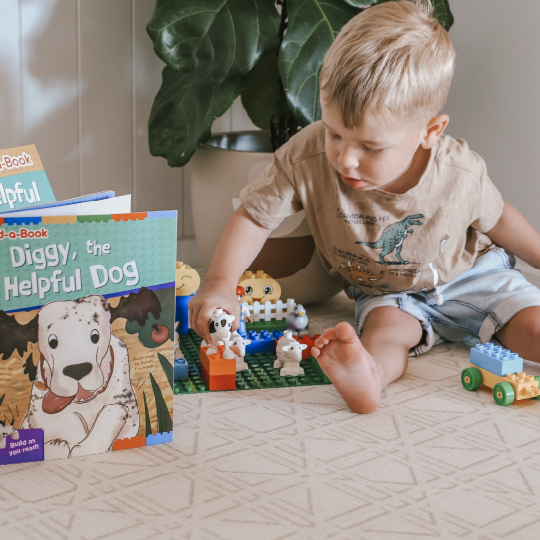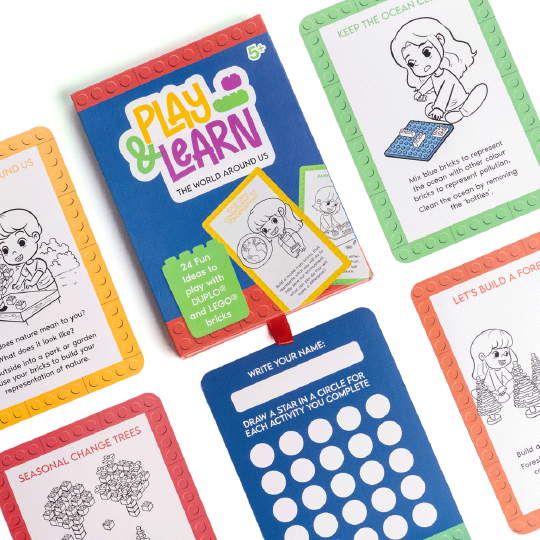Incorporating playful learning into early childhood education is essential for fostering holistic development in children. By keeping children engaged through playful learning, this approach supports holistic growth and cognitive development. This approach seamlessly blends play with educational objectives, creating an engaging and effective learning environment.
The Importance of Playful Learning in Early Childhood Education
Playful learning is a pedagogical approach that integrates play with structured learning experiences. Moreover, it is characterized by activities that are active, engaging, meaningful, socially interactive, and iterative, leading to increased learning outcomes. This method not only develops various aspects of child development but also allows children to gain skills without realizing the breadth of their progress. Additionally, essential skills such as perceptual abilities, critical reflection, and social-emotional growth are cultivated through this approach.

Benefits of Learning Through Play
Cognitive Development
Play encourages children to develop critical thinking, problem-solving skills, and creativity. For instance, activities like building with hands-on tools, playing with blocks, or engaging in imaginative play promote exploration and experimentation. Consequently, this foundation supports cognitive growth, physical skill development, and lifelong learning.
Social and Emotional Growth
Hands-on, experiential learning fosters social skills such as cooperation, negotiation, and empathy. As a result, children learn to navigate social interactions, understand emotions, and build relationships. These skills, therefore, become the bedrock of school success and overall well-being.
Physical Development
Play enhances fine and gross motor skills. Furthermore, activities involving movement, such as dancing or playing with manipulatives, improve coordination and physical health. These activities, in turn, also promote collaboration and full participation among children.
Language and Communication Skills
Play provides opportunities to develop language skills through storytelling, role-playing, and peer interactions. Consequently, these activities enrich vocabulary and communication abilities while reinforcing concepts like mathematical understanding, aligning with curriculum outcomes.
Integrating Playful Activities into the Curriculum
Strategies for Incorporation
- Design Play-Based Activities: Create fun and educational experiences like math games or science experiments to spark curiosity.
- Provide a Stimulating Environment: Equip classrooms with diverse materials and resources to invite exploration and cater to developmental stages. Thus, innovative play pedagogy can help achieve academic outcomes.
- Facilitate Guided Play: Engage with children during play to extend learning, ask open-ended questions, and introduce new concepts.
- Encourage Child-Led Exploration: Allow children to lead their play, fostering autonomy and confidence. Consequently, this approach supports comprehension, critical thinking, and curriculum achievement in a joyful environment.
Preparing for Lifelong Learning
Embedding playful learning into the curriculum nurtures executive functioning skills. Therefore, this approach prepares children for academic success and lifelong learning.
Where Does Six Bricks Fit In?
Understanding the Six Bricks Method
The Six Bricks method is a hands-on, interactive technique using six colorful DUPLO®-type bricks to enhance various developmental skills. Developed by Care for Education and supported by the LEGO Foundation, it integrates playful learning into daily routines.
Benefits of the Six Bricks Method
- Cognitive Development: Activities like replicating brick sequences enhance memory, attention, and problem-solving skills.
- Fine Motor Skills: Handling bricks refines hand-eye coordination and dexterity, essential for tasks like writing.
- Social Interaction: Group activities build teamwork and empathy, fostering a sense of community.
- Emotional Growth: Children develop resilience, adaptability, and self-esteem through overcoming challenges and celebrating achievements.
Practical Tips for Educators
- Incorporate Daily Activities: Begin the day with a quick Six Bricks activity to energize and focus children.
- Use as Transition Tools: Implement Six Bricks tasks for smooth lesson transitions.
- Customize Activities to Learning Objectives: Align tasks with educational goals, like teaching patterns or numeracy. Consequently, this ensures activities are purposeful.
- Encourage Creativity: Let children explore and create structures or stories, fostering imagination. Furthermore, this promotes independent thinking.
- Facilitate Group Work: Organize collaborative projects to enhance teamwork and social skills.
- Assess Progress Through Play: Observe children’s development in problem-solving, communication, and motor skills.
Examples of Six Bricks Activities
- Colour Matching: Enhance recognition by finding objects matching the bricks’ colors.
- Memory Game: Boost memory by replicating sequences of colored bricks.
- Storytelling: Develop language through stories prompted by brick colors.
- Math Concepts: Teach counting, addition, and subtraction using brick features.

Implementing Six Bricks in the Classroom
- Provide Individual Sets: Ensure each child has a set to foster engagement and responsibility.
- Create a Routine: Incorporate activities daily for consistency. Consequently, this establishes structure in the classroom.
- Train Educators: Offer professional development to adapt activities to diverse needs.
- Engage Parents: Encourage at-home use to reinforce learning and involve families.
Why Introduce Six Bricks Principles?
The Six Bricks method is a dynamic way to keep young children engaged through playful learning. Moreover, by integrating Six Bricks pedagogy, educators enhance educational outcomes and foster a lifelong love for learning.
How Do I Get Trained in Six Bricks?
Explore available Six Bricks training opportunities and purchase resource packs to implement this innovative method effectively.
